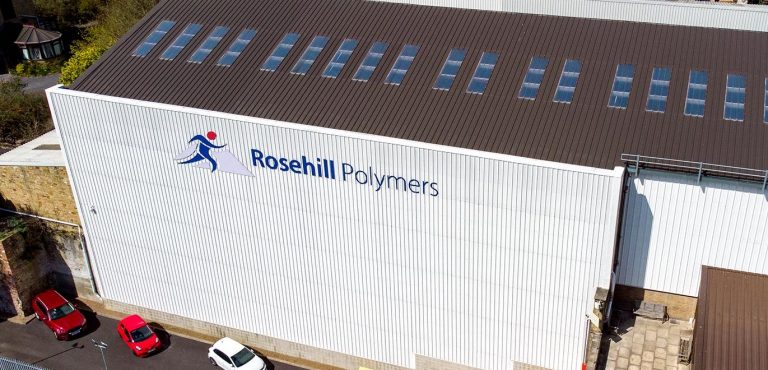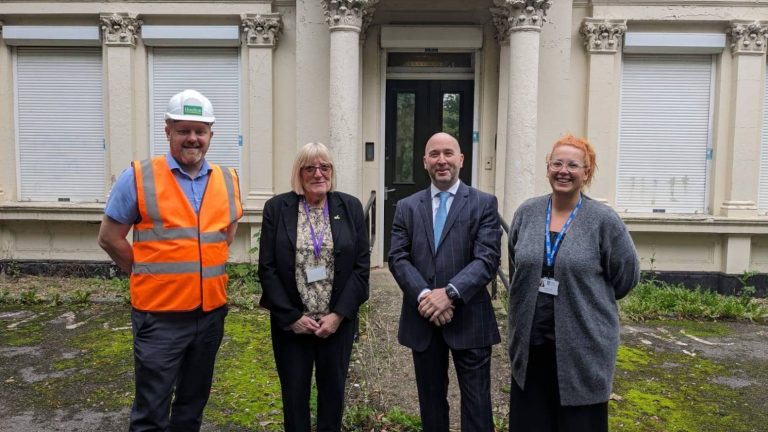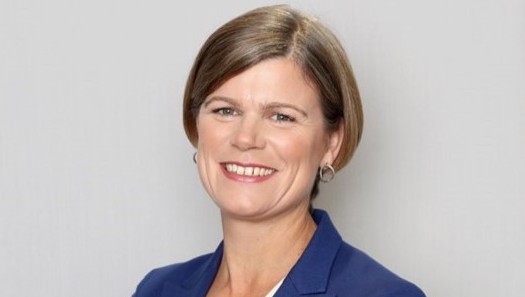Sheffield’s SMEs invited to share in funding worth £1.75m
Emma takes over as Community Ventures MD this month
Sewell Group’ estates consultancy company Community Ventures Management has appointed Emma Bolton assist Chief Executive.
Emma is a Fellow of the Royal Institution of Chartered Surveyors and a qualified town planner, and has spent much of her career in the public sector, working in strategic estates roles. She joined Community Ventures four years ago as Area Director for the North East and Leeds, before stepping up to the Chief Executive role this month.
She is well known throughout the healthcare estate industry after having held a variety of estates roles for local authorities and the NHS, including at NHS Property Services and NHS England, and as Director of Estate and Fleet at Yorkshire Ambulance Service.
Emma takes over from long-term Community Ventures leader Nigel Fenny, who will be stepping back to semi-retirement. He will be staying on with the team in a part-time, freelance capacity, so the company will retain his expertise and knowledge in the business.
Emma is looking forward to stepping up to the challenge of leading the Community Ventures team.
“I am really excited about the future for Community Ventures, and it’s a huge privilege to move into the role of Chief Executive. I’ve got a brilliant, talented team behind me who are passionate about making health estates and facilities fit for the demands of modern healthcare.
“We’re a rapidly growing consultancy, and we’re working tirelessly to help our expanding number of clients and partners find innovative, bespoke solutions to their estates challenges.”
Community Ventures is an estates consultancy, highly experienced across the NHS and commercial services, who support partners across England with estates strategies. Since they were formed in 2008, they’ve worked on some of the highest profile health estates projects in the North of England, including managing a £57.5m primary care transformation project in South Yorkshire, creating the business case for a £20m health and wellbeing centre in Keighley and being a key part of the construction of the £700m Royal Liverpool Hospital.
Financial services activity holds firm
- Optimism softened in September (weighted balance of +20% from +30% in June; long-run average of +3%).
- Business volumes growth was quick in the quarter to September, despite slowing from last quarter (+27% from +42% in June; long-run average of +13%). FS firms expect volumes to increase at a faster pace next quarter (+41%).
- Average spreads increased slightly in the three months to September (+5% from 0% in June). Spreads are expected to be broadly flat next quarter (-3%).
- The value of non-performing loans grew modestly in the quarter to September (+8% from 0% in June) but is anticipated to decline marginally next quarter (-5%).
- Profitability growth decelerated in the quarter to September (+13% from +41% in June) but is expected to speed up again next quarter (+38%).
- Employment expanded at a robust pace in the quarter to September (+34%), albeit at a slower pace than last quarter’s increase (+52%, fastest since December 2006). Firms expect headcount growth to ease further next quarter (+23%).
- Firms expect to increase investment in IT over the next 12 months (compared to the last 12). Capital expenditures on land & buildings and vehicles, plant & machinery are anticipated to be broadly unchanged.
- Uncertainty about demand was the most commonly cited factor likely to limit investment in the next 12 months (47%). The share of firms citing cost of finance (28%) as a potential limiting factor rose to its highest since December 2014.
Logistics confidence falls to second lowest level on record
Pubic asked to vote on central Hull property development
CMA fears Whitby Seafoods’ competitor acquisition will lead to higher prices and lower quality
“Kilhorne Bay is a relatively small player, but Whitby Seafoods already faces only very limited competition when competing for foodservice customers – so the deal would leave customers facing the risk of higher prices and lower quality products.”
Rosehill Polymers agrees multi-million pound package to boost international growth
North Lincolnshire Council promises Government cash will change Scunthorpe
Shunting HS2 into a siding unlocks promise of huge investment for transport in Yorkshire
- £2 billion for a new station at Bradford and a new connection to Manchester;
- £2.5 billion to deliver a new mass transit system in West Yorkshire;
- £3 billion for upgraded and electrified lines between Manchester and Sheffield, Sheffield and Leeds, Sheffield and Hull, and Hull-Leeds.
- Nearly £4 billion more funding for local transport in the North’s six city regions.
- A new £2.5 billion fund for local transport across all areas in the North outside the six city regions – smaller cities, counties, towns and countryside.
- A new £3.3 billion fund for road resurfacing.
- Landmark investments in roads, reopened train lines and new stations
Partnership to create more affordable North Yorkshire housing
SaaS firm strengthens leadership team with key appointment from KPMG
Healthcare operations technology provider acquires GP patient engagement solutions firm
Banks Group to sell renewables division
A marathon to remember: Summit 53
New visuals offer birds’-eye view of Sheffield’s West Bar
Hull contractor poised to start work on assisted living centre
Yorkshire’s coastal businesses offered advice to boost firms’ digital dimension
Business leaders’ voice will be heard at York & North Yorkshire Business Summit
Plant supplier signs six-figure deal to supply CATCH with welding equipment
Yorkshire Water’s £7.8bn investment will increase bills for consumers
- £3.1bn investment will drive efforts to deliver secure, safe clean water supplies with improved resilience of its network of pipes and a focus on future water resource needs.
- £4.3bn will support plans for a healthy, natural environment, with a focus on protecting and improving river and coastal water quality, to create a cleaner, safer water environment.
- The plan outlines investment in customer service and an increase in support available to customers with an investment of £446m.
- This includes financial support for half a million (500,000) customers, direct help with water bills for 280,000 customers and £250m worth of financial support across the five years.
- The plan will support employment for more than 10,000 people across Yorkshire.
- £2.4bn investment to improve supply resilience through increased mains replacement and refurbishment of critical storage and treatment assets
- £461m to secure future water resources and upgrade water meters to smart meters to give greater and more timely information on usage
- £95m to maintain safe, clean water supplies
- £83m to enhance collaboration with landowners and stakeholders to improve land management including sites of special scientific interest (SSSI) for the benefit of the environment and improve raw water quality
- £1.9bn to reduce the use of storm overflows and to protect the environment
- £1.8bn to maintain and improve wastewater collection and treatment, including monitoring systems to improve Yorkshire Water’s impact on the natural environment, including reducing Phosphorus, microplastics and unwanted chemicals entering watercourses, and investigating where environmental investments will be required in the future.
- £347m to ensure Yorkshire Water’s bioresources facilities continue to deliver and have sufficient capacity for the future
- £155m to reduce air emissions and ensuring Yorkshire Water’s infrastructure meets the need of a growing population and new developments
- £51m will be invested in measures to reduce greenhouse gas emissions
- £26m allocated to continue work in Hull and the East Riding to tackle flooding issues in the area through Living With Water – a partnership with the Environment Agency, Hull City Council, East Riding of Yorkshire Council and the University of Hull.






















